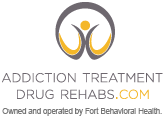If you are struggling with a mental health condition such as anxiety, depression, or bipolar disorder, and have also developed an addiction to drugs or alcohol, you may have what is known as co-occurring disorders, also known as dual diagnosis. It’s important to know that you are not alone, as approximately 8.9 million adults in the United States have co-occurring disorders. The good news is that dual diagnosis treatment can help you overcome both conditions and restore your mental wellness and physical health. But how do you know if dual diagnosis treatment is right for you?
If you’re looking to know more about dual diagnosis treatment in Lexington, a depression treatment program in Kentucky, or substance abuse treatment in Lexington, the following information will be of remarkable interest to you.
What Are Co-Occurring Disorders?
Co-occurring disorders are characterized by the presence of a mental health condition and a substance use disorder, such as drug or alcohol addiction. These disorders are often difficult to diagnose because they can mask each other’s symptoms.
Common mental health conditions that co-occur with addiction include:
- Anxiety disorders
- Depression
- Bipolar disorder
- Post-traumatic stress disorder (PTSD)
- Attention deficit hyperactivity disorder (ADHD)
- Personality disorders
Signs of Co-Occurring Disorders
Symptoms of co-occurring disorders may vary depending on the specific mental health condition present and the type of substance being abused. Some common signs that you may have a co-occurring disorder include:
- Using drugs or alcohol to cope with mental health symptoms
- Being unable to stop using drugs or alcohol on your own
- Experiencing withdrawal symptoms when trying to stop using drugs or alcohol • Having trouble maintaining relationships or keeping a job
- Engaging in risky behavior, such as driving under the influence or risky sexual behavior
- Suffering from physical health problems related to substance abuse, such as liver disease or lung problems
- Being distant or isolated from close family or friends
- Experiencing significant changes in appetite or sleep patterns
- Difficulty managing everyday life tasks
What Is Dual Diagnosis Treatment?
Dual diagnosis treatment is a specialized form of addiction treatment that addresses both mental health and substance abuse disorders simultaneously. The goal of dual diagnosis treatment is to help patients achieve lasting recovery by treating all underlying issues contributing to addiction.
This treatment approach is often provided in an inpatient setting, where patients can receive 24/7 medical supervision and support. Dual diagnosis treatment may incorporate a range of evidence-based therapies, medications, and complementary approaches, such as meditation and yoga.
Therapies Used in Dual Diagnosis Treatment
Cognitive Behavioral Therapy (CBT)
This therapy focuses on changing negative thought patterns and behaviors and helping patients to develop healthy coping strategies.
Dialectical Behavioral Therapy (DBT)
This is particularly helpful for patients with borderline personality disorder or eating disorders. It focuses on emotional regulation, distress tolerance, and interpersonal skills.
Eye Movement Desensitization and Reprocessing (EMDR)
EMDR can treat PTSD. It involves eye movements to desensitize traumatic experiences and help patients process them more effectively.
Motivational Interviewing
This helps patients explore their ambivalence about change, and to find their own motivation to pursue recovery.
Get Help Today From a Dual Diagnosis Treatment Center
If you or a loved one is struggling with co-occurring disorders, it’s important to seek help from an experienced dual diagnosis treatment center. A treatment center will help you with detoxification, medication management, therapy, and support.
At a dual diagnosis treatment center, you will have access to a range of treatment options to help you achieve a lasting recovery. Remember that you are not alone in your journey toward recovery. With the right support and treatment, your co-occurring disorders can be successfully treated, and you can go on to live a healthy, fulfilling life.

